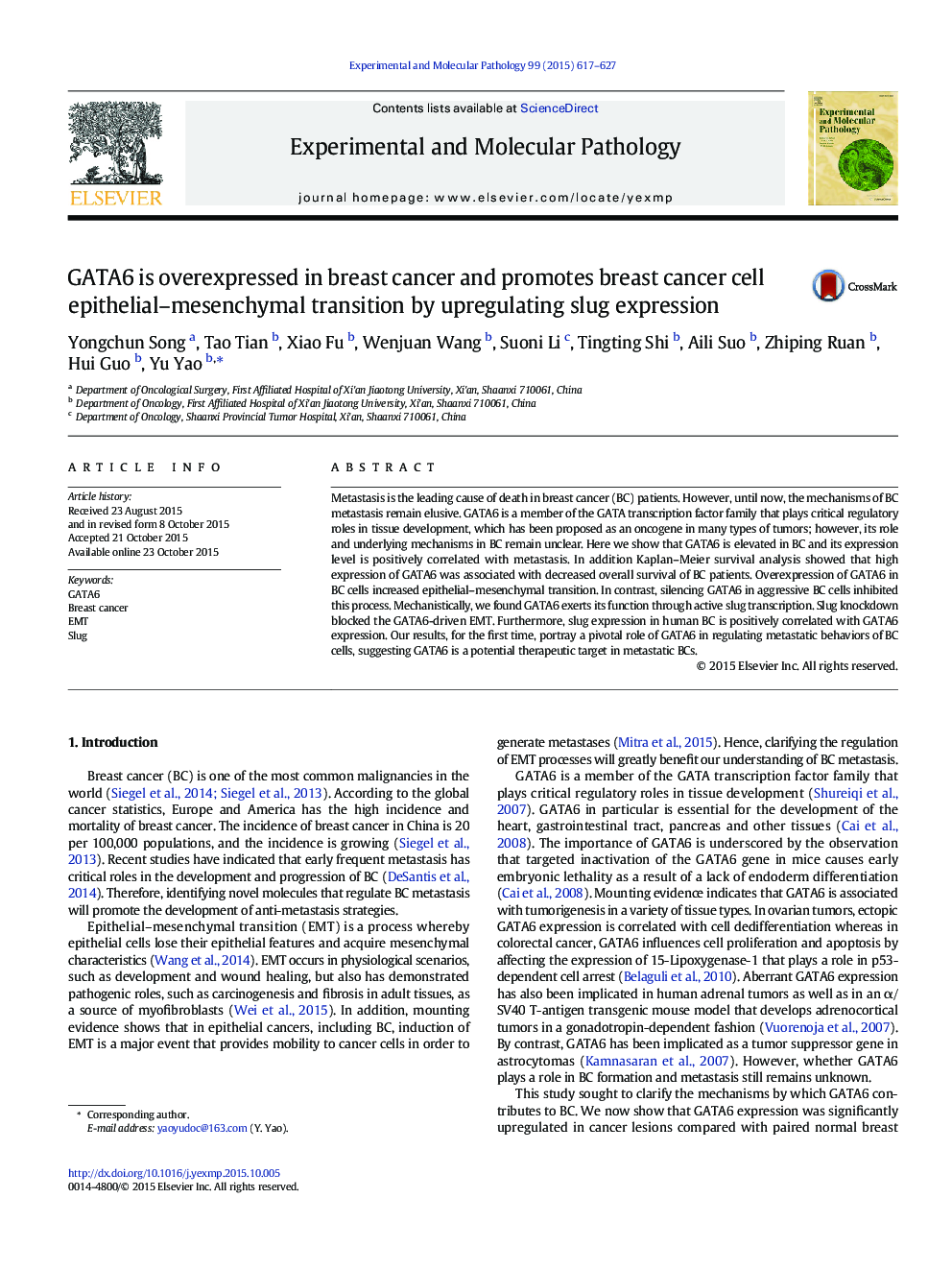| Article ID | Journal | Published Year | Pages | File Type |
|---|---|---|---|---|
| 2774903 | Experimental and Molecular Pathology | 2015 | 11 Pages |
•GATA6 is correlated with breast cancer metastasis.•GATA6 promotes breast cancer cell EMT.•GATA6 alters slug expression.•Slug in breast cancer is positively correlated with GATA6.
Metastasis is the leading cause of death in breast cancer (BC) patients. However, until now, the mechanisms of BC metastasis remain elusive. GATA6 is a member of the GATA transcription factor family that plays critical regulatory roles in tissue development, which has been proposed as an oncogene in many types of tumors; however, its role and underlying mechanisms in BC remain unclear. Here we show that GATA6 is elevated in BC and its expression level is positively correlated with metastasis. In addition Kaplan–Meier survival analysis showed that high expression of GATA6 was associated with decreased overall survival of BC patients. Overexpression of GATA6 in BC cells increased epithelial–mesenchymal transition. In contrast, silencing GATA6 in aggressive BC cells inhibited this process. Mechanistically, we found GATA6 exerts its function through active slug transcription. Slug knockdown blocked the GATA6-driven EMT. Furthermore, slug expression in human BC is positively correlated with GATA6 expression. Our results, for the first time, portray a pivotal role of GATA6 in regulating metastatic behaviors of BC cells, suggesting GATA6 is a potential therapeutic target in metastatic BCs.
